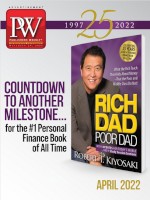When I sold my 15th novel, The Enlightenment Project, and my publicist asked for a list of people I could ask for blurbs, I faltered. I explained that my husband had been quite ill, and that I had been out of the loop for a while—that anyone I asked would likely say, “Lynn who?”
My publicist persisted. “Tell me who you know.” I mentioned that Wendell Berry, the great poet and writer, had been my teacher and my mentor. “Perfect,” she said. “Ask him.”
So I did. I sent a typed letter, reminding Wendell rather shyly who I was. I addressed him as Dr. Berry, and apologized for the audacity of my request. Three days later I received a response—handwritten on a sheet of yellow legal pad, in pencil. Wendell has been known to write on a feed sack, but I believe such surfaces are reserved for poetry.
I sat at my desk, dog at my feet, and read the letter, my hand shaking, just a little, as a slow smile of joy spread across my face. Wendell began by telling me that what I called audacity, he remembered as “your good sense and a vivid spiritedness, that I saw in you when you were a student and remember very well. But I quit writing blurbs a long time ago, just because I didn’t have the time to make honest work of it. I am not sorry I quit, but I’m sorry to say no to you.”
He said that he hoped I was all right, and to please stop calling him Dr. Berry, as he was my old friend, Wendell. He sent me a signed copy of his book of essays, Why I Am Not Going to Buy a Computer, and I read it right there at my desk, happy just to hear his voice in his work, remembering when I had stormed the University of Kentucky, a 16-year-old freshman, seeking out every writing class offered.
I landed in Wendell’s office to get the requisite permission to take his writing class, and found him sitting sideways at his desk, looking out the window. I am five feet tall. With him sitting down, we were pretty much on a level.
He was concerned with all the writing classes I was taking. He advised me to wait. If I did not turn in good work, I would flunk his class, no matter how hard I tried. It was the results that counted.
Writing is what I do, I told him. He grinned and signed my card. We could write about anything we wanted, he said, so long as we wrote it well. I wrote fantasy, supernatural stories; I wrote about my great-grandmother, who gave me her name. He taught me how to write specifically, with clarity, how to structure the flow of a scene. When stream of consciousness was all the rage, and I put it into a scene, Wendell told me it was “nonsense” and I turned my back on literary fads forever. I learned that work that came easily might garner high praise, while work I labored over might not. This taught me the folly of writing with onerous pretension, and the wisdom of writing honestly and straight from the heart.
Once graduated and published, I would see Wendell at events for Kentucky authors. I read from Satan’s Lambs, my novel about a fearless female private investigator in the South who takes on a satanic cult. He read poetry. I was welcomed into the pack of old-school literary writers, not allowed to hover shyly around the edges.
I wrote Wendell a letter of thanks for the signed book and his swift response, on my own favorite lined note paper, in the bold purple ink of my favorite fountain pen. I thanked him for the essays, told him that I still wrote my novels by hand through a sort of instinct, and appreciated that his essay on art and the body told me why. I told him that I was a widow now, and that my beloved was somehow gone, and somehow here. That I was writing a new novel, by hand of course. I told him I was okay. That I hoped he was, too.
I got another letter, which brought words of comfort and wisdom to my grief, and ended this way: “And I do know why you write your first drafts by hand. I wish you well. Your friend, Wendell.”
Sometimes in life you don’t get what you want. Sometimes you get something better. I might not have landed a blurb, but asking for one gave me the opportunity, and a reason, to be back in touch with the teacher who encouraged and inspired me, who taught me what really matters—and still does.
Lynn Hightower is the author of the Sonora Blair and Lena Padget detective series, among other books. Severn House will publish The Enlightenment Project in March 2022.



 Volume 268
Issue 49
11/29/2021
Volume 268
Issue 49
11/29/2021





